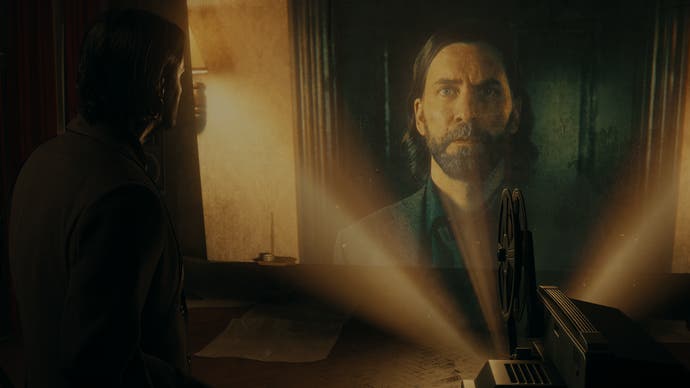Alan Wake 2's most memorable chapter was almost cut out
"I was like: 'Absolutely not. We are not cutting it'."
Alan Wake 2's most memorable – and surprising – chapter was almost cut.
That's according to the critically acclaimed horror game's creator Sam Lake and director, Kyle Rowley.
This story contains spoilers for Alan Wake 2, so please only read on if you've completed the game or are happy to be spoiled.
"It was really, really hard for a number of reasons to have a musical in this," Lake explained on the Friends Per Second podcast (thanks, GameSpot). "And there were many productions meetings [where people insisted]" 'Come on, we need to cut this'.
"I was like: 'Absolutely not. We are not cutting it'."
Lake says that it was challenging for some members of the team to envisage how Remedy's signature blend of cinematics and live-action footage could come together in this particular sequence, especially with the musical number thrown in.
"When you say to someone, 'We're gonna put a musical in a survival-horror game', the question comes to – ‘Well, how? What's the gameplay loop there?'" Rowley added.
Lake credits Poets of the Fall, the real-life Finnish rock band behind the fictional Old Gods of Asgard, as helping Matthew Poretta (Alan Wake) and Warlin Door (David Harewood) get to grips with the performance, as well as noting that Poretta’s musical talent helped "pushed the idea forward".
"[This] is a game that feels designed to hit all the right cultural touchpoints without offering new insight or real bite of its own, besides "it knows what it is, with citations"," we said in our Alan Wake 2 review, for which we awarded it three out of five stars.
"And to its credit, Alan Wake 2 accomplishes its goals with verve and polish. But its narrative choices feel like a defence mechanism to validate its own derivativeness, even with the full knowledge that it has done all of this on purpose. It is not the first game to iterate meaningfully on the concept of loops, and it won't be the last, though it does marry its structure seamlessly with the writing process and the writer's ego, which will certainly feel monumentous for some.
"But action games are didactic by nature - we all must learn from tutorials and mistakes in order to win. The problem is winning in Alan Wake 2 feels like completing a beginner's course in media literacy - a beautifully presented one, but also one that doesn't reveal anything you couldn't figure out on your own."



.jpg?width=291&height=164&fit=crop&quality=80&format=jpg&auto=webp)






